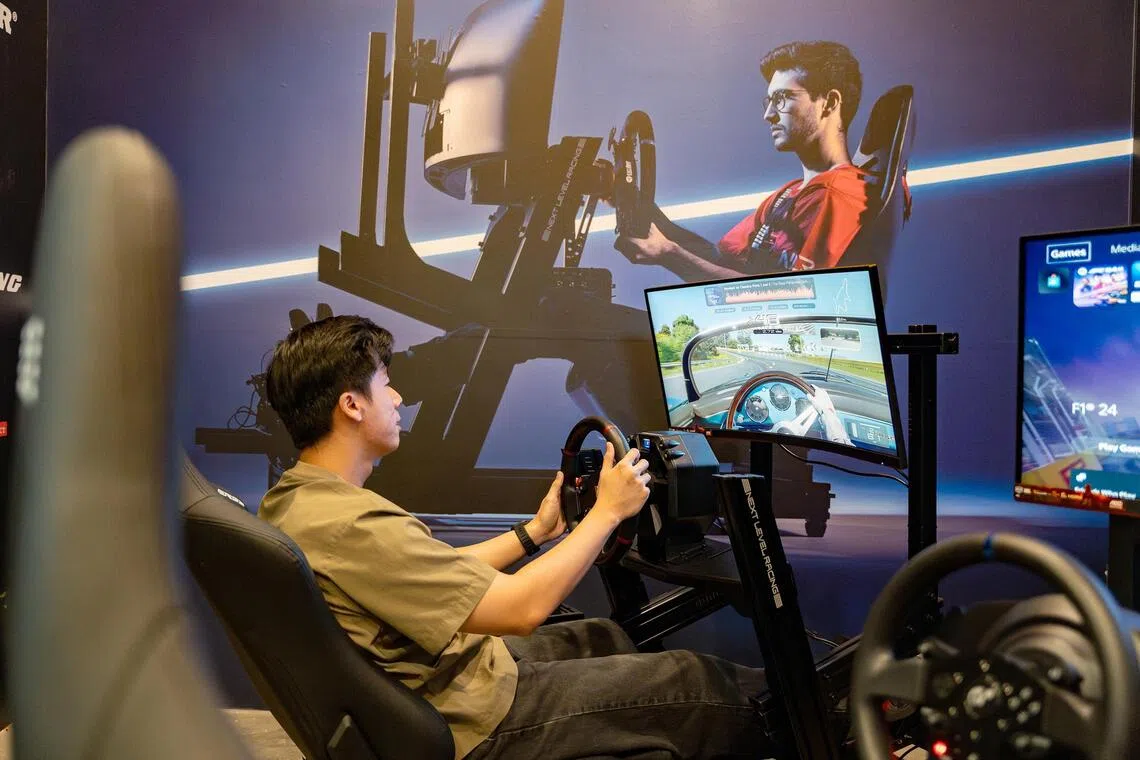Gaming, fashion, beauty top Singapore’s online exports on PayPal
Sign up now: Get ST's newsletters delivered to your inbox

Game credits and in-game accessories like rare skins are most commonly sold, said local gaming companies.
PHOTO: EVO AMUSEMENT
- Gaming is Singapore’s top export on PayPal according to a report, generating over US$593 million annually with 1.7 million monthly transactions.
- Razer, G2G and Cherry Credits, Singapore's gaming companies, have seen revenue growth from overseas markets.
- Singapore is investing in e-sports, with legislation tabled and a training centre planned.
AI generated
SINGAPORE - Gaming products are among the top three online exports from Singapore by annual transaction value and volume, according to an inaugural report by payments firm PayPal, which tracks cross-border trade online.
Game credits and in-game accessories like rare skins are most commonly sold, said local gaming companies.
In all, US$593 million (S$775 million) worth of gaming products were sold between April 2024 and March 2025, driven by demand from the US, Germany and Japan, according to PayPal.
During that period, PayPal processed a total of US$1.6 billion worth of online sales from Singapore sellers in the top three verticals of gaming, beauty and fashion.
Fashion products include clothes, shoes and jewellery, while beauty products include make-up and skincare.
The report also generated insights from Hong Kong, the UK, the US and Germany.
Similar to Singapore, Hong Kong’s top three sectors with the highest exports by value and volume are gaming, computers and software, and general retail, according to PayPal.
“Singapore continues to establish itself as a regional gaming hub, supported by continued investment in talent, innovation and digital infrastructure development,” said Mr Matthew Lucas, vice-president and head of cross-border trade at PayPal.
“This conducive environment has created a vibrant gaming community and export economy, where locally headquartered brands such as Razer and G2G can reach global audiences seamlessly using PayPal.”
Business Research Insights valued the global gaming industry at US$280.5 billion in 2025, and it is expected to grow at a compound annual growth rate of about 12.5 per cent from 2025 to 2035, reaching a value of US$1.76 trillion.
“Gaming credits and in-game currency are the most popular purchases among our overseas users, followed closely by subscriptions to premium game passes and streaming platforms,” said Mr Jia-Liang Voon, senior director of global business development (services) at Singapore-based gaming company Razer.
“These products offer instant access, exclusive rewards, and ongoing engagement, which resonate strongly with today’s gamers.”
PayPal is one of the payment methods to top up the Razer Gold digital wallet, which allows gamers to pay for over 60,000 games and entertainment titles across platforms.
Mr Voon said the strongest adoption of Razer Gold, rolled out in 2017, is in South-east Asia, Latin America and the Middle East.
Mr Ken Chee, group chief executive officer and founder of gaming marketplace G2G, said the company’s overseas markets have been a main driver of its growth over the last five years.
Top overseas markets include the US, Germany, the UK, Canada and France.
“Since these countries are major centres for new game releases and competitive e-sports, their consumers demand a wide selection of specialised, high-demand items – something our global marketplace is perfectly set up to deliver,” said Mr Chee, adding that the most common purchases are in-game items like rare skin and gears, and gift cards.
Mr Stanley Liew, chief financial officer of game publisher and micropayment solutions provider Cherry Credits, said its sales growth was buoyed by a rise in demand for titles from its key game content partners, such as Eyedentity Games and NetDragon Websoft.
Cherry Credits sells mostly in-game credits.
“Gamers can decide later whether to spend on coins, costumes, consumables, subscriptions or materials for equipment. It’s similar to buying shopping vouchers for a mall,” said Mr Liew.
Singapore tabled legislation to formally recognise e-sports as sports



